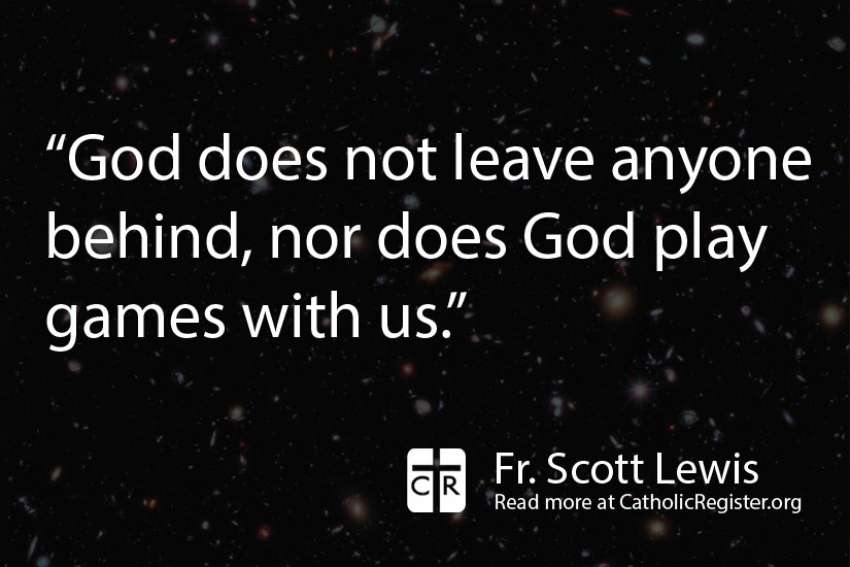Yet the author of Wisdom marvels at how much God loves each speck of creation and every human being. In fact, God’s Spirit pervades everything.
In the face of some theologies that declare humans corrupt or depraved, or creation itself as a mistake, Wisdom exults in the beauty and holiness of the entire created order. Whatever God loves so passionately, we dare not despise, reject or mistreat.
God’s love is proven by the infinite patience God shows in guiding and correcting us. Gentle nudges, as well as warnings and instruction whispered into our hearts, guide us back to the path when we stray. God even sends us the experiences we need to grow spiritually.
Knowing that we are not insignificant in God’s eyes and that we are infinitely loved can open our hearts and minds to the grandeur of God that is all around us, and to the presence of grace working in every life.
Many of us have dreamed of missing a flight or train and feeling great relief upon awakening and realizing that it was only a dream. We don’t want to be left behind. Apparently, rumours were rampant in Thessalonica that Jesus had already come. Paul or one writing in his name tried in this letter to calm and reassure the community. God does not leave anyone behind, nor does God play games with us. We will have the experiences and the guidance we need to be ready for the moment when we return home.
Mercy and unconditional love can be transforming and life-changing. Zacchaeus was quite used to people going out of their way to avoid him or even to show him contempt. Being hated and despised was just part of his life. And why not? His job of collecting taxes for the Romans involved betraying his own people and extorting huge sums of money from those who had no means to pay.
Being vertically challenged, Zacchaeus climbed up a tree so that he would be able to see Jesus when He came to town. He felt out of sight and safe there, until Jesus stopped beneath his tree and spoke to him. Jesus told him to come down, for He was going to have dinner with him that night in his house. The townspeople were outraged and horrified. They did their best to sway Jesus, probably by recounting all of Zacchaeus’ nefarious deeds, both real and imagined.
But Zacchaeus put up a vigourous defense as he came down out of the tree. He had been touched and changed by the acceptance and love that Jesus had shown him. Zacchaeus promised to give half of what he had to the poor and to give four-fold restitution to anyone he may have defrauded.
Jesus was delighted, and He declared that salvation had come to Zacchaeus’ house, for he was also a son of Israel.
Jesus had come to seek out the lost and remind them of their status as children of God. No one loses this status because of the mess they make of their life, but they often need to have that status called to mind in a dramatic way.
People tend to write off or dismiss those who walk other paths, especially if those paths are rather murky and unsavoury. We could all substitute some class or type of person for the tax collector. Jesus showed us that mercy, compassion and acceptance of the other is far more efficacious in leading people back to God than contempt and hatred. It is a lesson we need to relearn constantly.
Jesus saw through the outward part of Zacchaeus’ life. By means of His mercy and love, He called forth the part of Zacchaeus that was holy, pure and in the presence of God.
Fortunately, Zacchaeus responded by opening his heart. Jesus also calls us in similar ways, but as with Zacchaeus, we need to say yes to grace.
More importantly, we need to continue the work of Jesus by calling the isolated, fearful and wounded out of their hiding places and self-made prisons.

